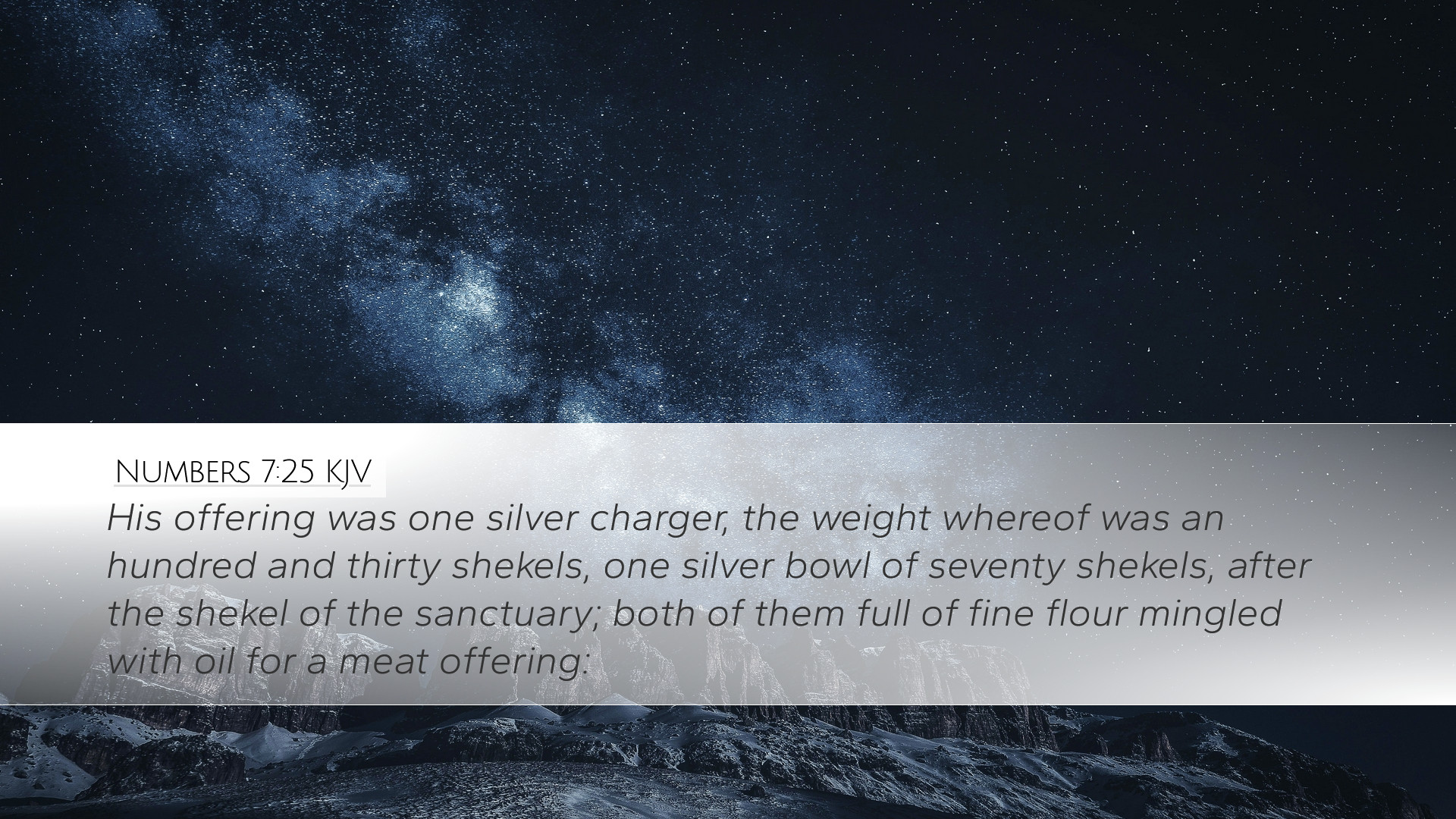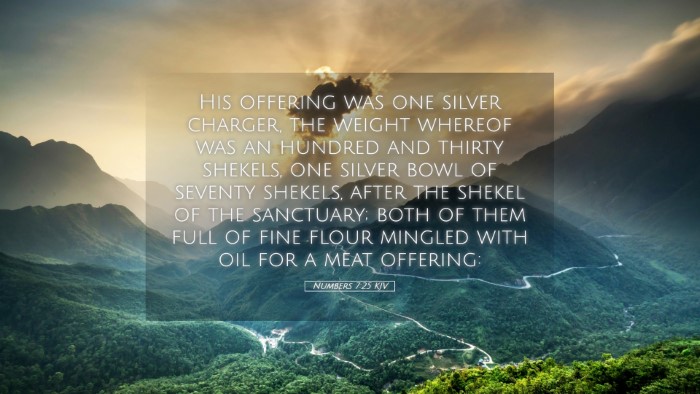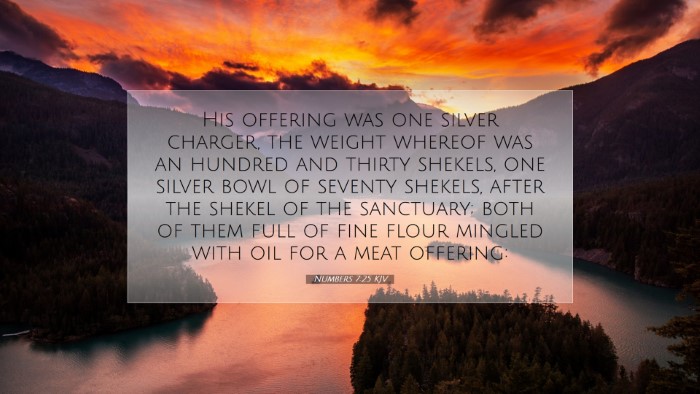Commentary on Numbers 7:25
Numbers 7:25 states: "On the eighth day he offered his offering; for he was the ruler of the
children of Ephraim." This passage is part of the broader narrative where the leaders of Israel
present offerings at the dedication of the altar. It marks a significant moment in Israel's history,
reflecting the importance of leadership in worship and communal contribution.
Contextual Overview
The book of Numbers serves as a record of the Israelite's wilderness journey from Sinai to the
Promised Land. This specific chapter details the offerings made by the tribal leaders at the
dedication of the altar. The systematic recording of these offerings helps in understanding the
organization and structure of worship within the Israelite community.
Exegesis and Insights
Leadership and Responsibility
The role of the leader, as exemplified by the ruler of Ephraim, is central to the duties and
responsibilities within the Israelite community.
- Matthew Henry emphasizes the importance of leaders being exemplary in their
spiritual and communal duties. They serve not only as guides but also as initiators of worship,
showing that religious devotion begins at the top.
- Albert Barnes elaborates on this concept by suggesting that the leader’s
offering signifies a commitment to God and illustrates how leadership directly impacts the faith
life of the community.
The Significance of the Eighth Day
The mention of the eighth day carries rich theological symbolism.
- Adam Clarke notes that the eighth day represents a new beginning—a theme
found throughout scripture. This aligns with the understanding that after God's creation, the
eighth day symbolizes resurrection, renewal, and hope.
- This can be likened to the resurrection of Christ, occurring on the eighth day, suggesting
an ultimate fulfillment of God’s promises and a call to worship in a new and powerful way.
Civic and Religious Unity
The unified offerings of the tribes represent the corporate nature of Israel’s worship. Each
leader’s offering contributed to a larger collective act of devotion to God.
- Matthew Henry suggests this communal aspect reflects the body of Christ,
where each member has a role to play in the spiritual health of the community.
- Albert Barnes further emphasizes that these offerings were meant to promote
harmony and collaboration amongst the tribes, showing that God desires unity in worship.
Theological Themes
God’s Desire for Worship
Numbers 7:25 highlights that God desires the leader's and, by extension, the nation’s offerings,
which is an essential aspect of worship in biblical theology.
- Adam Clarke reflects on how worship must come from a place of sincerity and
intent, aligning personal sacrifice with communal devotion.
- Leading offerings symbolize a heart aligned with God's purposes, resonating with the New
Testament idea of presenting ourselves as "living sacrifices" (Romans 12:1).
Spiritual Significance of Offering
The act of giving an offering is key in understanding both ancient and modern expressions of faith.
- Matthew Henry states that these offerings reflect obedience to God's commands
and an acknowledgment of His sovereignty over all aspects of life.
- This is a precursor to understanding how offerings testify to God’s provision and the
worshiper's faith in His ongoing mercy and love.
Conclusion
In conclusion, Numbers 7:25 encapsulates essential themes of leadership, communal worship, and
the nature of God’s relationship with His people.
For pastors, students, theologians, and Bible scholars, this verse and its implications foster
dialogue about what it means to lead in worship and how communal acts speak to our shared
identity in Christ.
Understanding the depth of this verse allows believers to appreciate the richness of biblical
worship and the call to be leaders in faith, reflecting God’s glory through our offerings.


